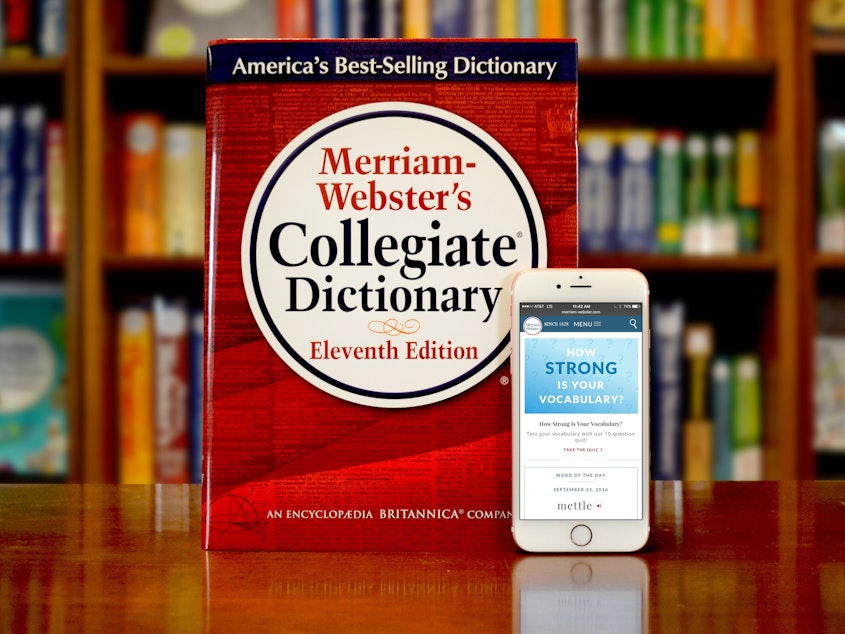Merriam-Webster's word of the year definitely wasn't picked by AI

If what we search for is any indication of what we value, then things aren't looking great for artificial intelligence.
"Authentic" was selected as the 2023 word of the year by the Merriam-Webster dictionary, landing among the most-looked-up words in the dictionary's 500,000 entries, the company said in a press release Monday.
After all, this was the year that Chat GPT disrupted academic integrity and AI drove Hollywood actors and writers to the picket lines.
Celebrities like Prince Harry and Britney Spears sought to tell their own stories. A certain New York congressman got a taste of comeuppance after years of lying. The summer's hottest blockbuster was about a world of pristine plastic colliding with flesh-and-blood reality.
On social media, millions signed up to "BeReal," beauty filters sparked a big backlash and Elon Musk told brands to be more "authentic" on Twitter (now X) before deciding to charge them all $8 a month to prove that they are who they say.
Sponsored
2023 was the year that authenticity morphed into performance, its very meaning made fuzzy amidst the onslaught of algorithms and alternative facts. The more we crave it, the more we question it.
This is where the dictionary definition comes in.
"Although clearly a desirable quality, authentic is hard to define and subject to debate — two reasons it sends many people to the dictionary," Merriam-Webster said in its release. Look-ups for the word saw a "substantial increase in 2023," it added.
For a word that we might associate with a certain kind of reliability, "authentic" comes with more than one meaning.
It's a synonym for "real," defined as "not false or imitation." But it can also mean "true to one's own personality, spirit, or character" and, sneakily, "conforming to an original so as to reproduce essential features."
Sponsored
This may be why we connect it to ethnicity (authentic cuisine or authentic accent) but also identity in the larger sense (authentic voice and authentic self). In this age where artifice seems to advance daily, we're in a collective moment of trying to go back, to connect with some earlier, simpler version of ourselves.
The dictionary said an additional 13 words stood out in 2023's look-up data. Not surprisingly, quite a few of them have a direct tie-in to the year's biggest news stories: coronation, dystopian, EGOT, implode, doppelganger, covenant, kibbutz, elemental, X and indict.
Others on the list feel connotatively connected to "authentic," or at least our perception of identity in a changing age — words like deepfake, deadname and rizz.
This year, the data-crunchers had to filter out countless five-letter words because they appeared on the smash-hit daily word puzzle, Wordle, the dictionary's editor-at-large told the Associated Press.
That people were turning to Merriam-Webster to verify new vocabulary could be read as a sign of progress. After all, 2022's word of the year belied a distrust of authority: gaslighting. [Copyright 2023 NPR]



